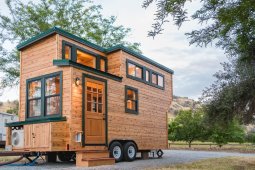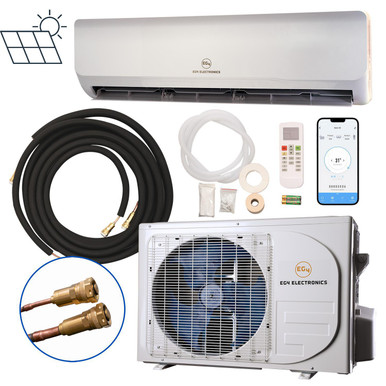I'm in AZ just got my electric bill $530 hit me an extra $80 adjuster fee for using too much overall power I decreased the on peak and shifted it to my off peak. I'm definitely building an off-grid system now. I found a supplier I can trust in China 280AH cells $80 each brings the ROI down enough it's worth it. I'm not pulling a permit either going to off load my AC unit, Stove, and electric dryer. That is majority of my monthly bill
Off-grid means inverter needs to supply 100% of loads, as does PV + battery, in worst of times. If it is able to draw from grid for additional power, much easier because it can be undersize.
I have enough room on the back patio for 20 - 500-watt panels.
If I pull a permit, they require me to get a contract with my utility they put all these restriction on you can't install a system bigger then 15KW for 200-amp panel.
The 120% rule - 200A panel, 200A main breaker, max 40A PV breaker 32A backfed is 7.68 kW.
If 225A panel, 200A main, max 70A PV breaker 56A backfed is 13.44 kW
No 120% rule if 200A main disconnect is breaker only, branches out to multiple sub-panels.
(I understand a 200A main panel with just 200A main breaker and 200A tap at end of busbar, all other breakers removed, can be treated same as 200A main disconnect.)
A system with 15kW (STC) PV is likely more than sufficient for your consumption, but need to see kWh/day.
Something like SolArk should be able to process all your PV, backfeed the house with zero-export (not exceeding 7.68kW if necessary), charge batteries with excess power, supply additional power to downstream loads.
If you backfeed the grid, need to get utility involved. If zero-export but blending PV power with grid power, likely also.
If your system operates as double-conversion on-line UPS (Utility and PV charge batteries, AC created from batteries), likely not.
Its likely HVAC and water heater. Both of these items can be upgraded to more efficient units that come with tax credit and sometimes even local incentives as well.
We don't use a lot of hot water, and gas bill is $8/month. Maybe electric would cost $80? Although, gas water heater has heat-loss path through flue, but electric can be better insulated. Other loads are what's killing you.
With Arizona sun, how about solar pre-heat water, solar clothes-line dryer?
Stove likely isn't operated enough hours to matter.
A/C is the killer. Look into its efficiency and duct sealing. If it is trying to condition the great outdoors, you lose.







